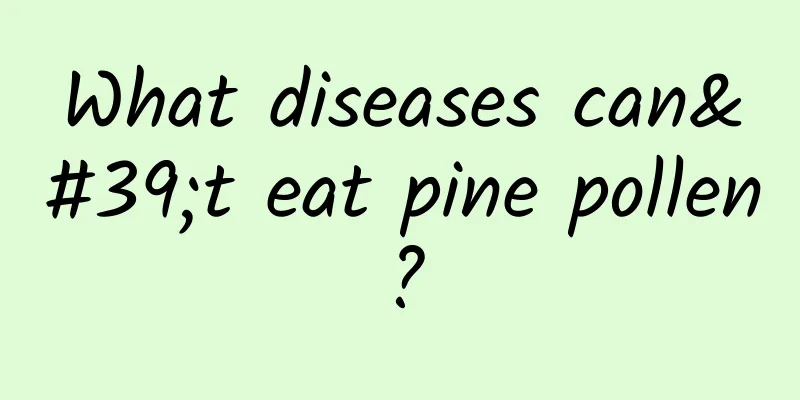Should I take antipyretics before or after meals? A must-read for mothers

|
Fever is a disease that many children are prone to, and is often accompanied by a cold. The time to take antipyretics has always been a concern for everyone. Is it better to take antipyretics after meals or before meals? Doctors generally recommend taking them after meals. Taking them on an empty stomach before meals may irritate the stomach, so it is recommended to take antipyretics after meals. Use antipyretics only when the body temperature reaches above 38.5℃. A fever below 38.5℃ is generally within the safe range that the body's immune function can cope with, and there is no need to take antipyretics. At this time, you can drink an appropriate amount of warm water or oral rehydration salts to make your body sweat or urinate to help cool down. You can also adopt physical cooling measures at the same time, such as wiping the head, neck and limbs with warm water below body temperature, or wiping the armpits, palms and soles of feet with low-concentration alcohol. If antipyretics are used too early, it will not only affect the body's immune function and prolong the course of the disease, but may also mask the symptoms by reducing the fever, making the diagnosis of the primary disease more difficult. In addition, drugs may also bring certain side effects. If the child has a history of febrile convulsions, it is recommended to use antipyretics as soon as possible. The medicine starts to take effect half an hour after taking it. It takes some time for antipyretic drugs to take effect, usually between half an hour and two hours. After taking the medicine, pay attention to observe the body temperature and the child's performance. Do not rush to add or change the medicine to avoid drug overdose. For commonly used antipyretic drugs such as ibuprofen, paracetamol, etc., it is generally recommended to wait for more than 6 to 8 hours before taking the next dose. In order to reduce fever quickly, many people take the same medicine again within a certain period of time, or take other antipyretic drugs at the same time. Doing so can easily cause accumulation of antipyretic drugs and damage the liver and kidneys. Stop taking the medicine when the body temperature drops below 38.5℃. When the body temperature drops below 38.5℃, the body's autoimmune protection mechanism is restored and can be regulated through physical cooling measures. Stopping the medication at this time can also reduce the damage of the medication to the body. If the medication is ineffective after three times, it is best to see a doctor. Generally speaking, if it can be preliminarily determined that the fever is caused by a cold, the symptoms are not severe, the fever does not exceed 39.5℃, and the child is in a good mental state, you can first drink more water, take antipyretics and observe at home. However, if the fever does not go down after taking medicine two or three times, or if the fever is accompanied by vomiting, diarrhea, or persistent high fever, or if the mental state is very poor, you should go to the hospital in time to avoid delaying treatment. |
<<: What is the difference between eye bags and eye bags?
>>: Symptoms of thrombocytopenia, early treatment
Recommend
How to treat hair loss
In today's society, many people are extremely...
Treatment of radiation-induced brain injury
The human brain is the most important organ of th...
Will long-term tinnitus lead to deafness?
Tinnitus is a common disease. There are many reas...
Does less hair mean kidney problems?
The fast-paced lifestyle and excessive life press...
What should people with low blood pressure eat according to traditional Chinese medicine?
What should people with low blood pressure eat? T...
Is scarlet fever contagious?
I believe that everyone has had diseases such as ...
How to replenish qi and blood without getting angry
Many people suffer from weak Qi and blood, especi...
Can Pangdahai effectively reduce weight?
In order to help themselves achieve the effect of...
What are the effects of drinking Chinese medicine and beer?
People must never drink beer right after taking C...
What causes anal leakage?
Anal fistula is a disease in the anal area of t...
What causes cold arms?
Cold arms are quite common in daily life. From th...
What should I do if I have stomach fire and bad breath? Dietary remedies to relieve stomach heat
People with excessive stomach fire are most likel...
What to do if your kidneys are not healthy and your eyes are swollen
People with poor kidneys usually have some advers...
The key to longevity is in the morning, but are you doing it right?
We all know that "the morning sets the tone ...
Chlamydia trachomatis
When it comes to Chlamydia trachomatis, the first...









